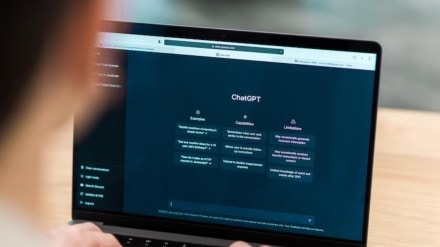By Anil Somani
The education system plays a vital role in society, shaping the minds of future generations and preparing them for success. As technology advances, there is a need to adapt our approaches to meet the changing needs of learners. Enter ChatGPT, a transformative innovation in education. With its ability to engage in dynamic dialogues and provide personalised learning experiences, ChatGPT is revolutionising the learning process. Extensive research has shown that personalised learning significantly improves student outcomes.
By leveraging this Ai tool’s capability, educators can create tailored learning experiences that cater to each student’s unique needs, fostering better comprehension and knowledge retention. According to UNESCO, 258 million children globally do not have access to education (source: UNESCO Global Education Monitoring Report). ChatGPT can help students with impairments, language obstacles, or learning issues overcome this gap. This inclusion guarantees that all students, regardless of circumstance, have access to educational resources and opportunities.
Challenges and the future
While ChatGPT and other AI technologies provide a wealth of benefits, they also present a number of problems that must be carefully considered. To develop trust and protect student information, ethical problems such as data privacy, algorithmic bias, and transparency must be addressed. Technical constraints, such as the tool’s capacity to comprehend complicated concepts or adapt to different learning methods, necessitate constant research and modification. Furthermore, it is critical to retain the critical teacher-student relationship and find a balance between AI and human engagement in order to give students advice, mentorship, and emotional support.
Ethical problems: The usage of AI technologies such as ChatGPT raises ethical questions about data privacy, algorithmic prejudice, and the possible exploitation of personal information. Protecting student data and maintaining transparency in algorithmic processes are critical issues that must be addressed.
Technology constraints: While AI has made great advances, its capabilities remain limited. ChatGPT may struggle to comprehend difficult or subtle topics, provide reliable feedback, or adapt to varied learning methods. To overcome these constraints, ongoing technical research and refinement are required.
Teacher-student interaction: The use of AI tools in education may have an influence on the teacher-student relationship. There is a need to establish a balance between AI’s personalised experiences and the critical function of human educators in providing students with advice, mentorship, and emotional support.
Diversity and ease of access: While AI technologies have the potential to transcend educational barriers, there is a concern that they could exacerbate existing inequities. In some areas or among marginalised people, access to technology and dependable internet connections may be limited. It is a huge problem to ensure fair access to AI-powered educational materials while also bridging the digital divide.
Opportunities
Personalised learning: ChatGPT’s capacity to adapt to specific student demands opens up the possibility of personalised learning experiences. Educators can respond to students’ particular strengths, limitations, and learning preferences by adjusting information, explanations, and feedback, resulting in improved outcomes.
Inclusion and accessibility: Artificial intelligence (AI) solutions such as ChatGPT can open educational possibilities for students with impairments, language obstacles, or learning issues. Educational institutions may provide equitable access to excellent education by creating inclusive technologies that promote diversity and inclusiveness.
Self-directed learning and flexibility: Since AI tools are accessible around the clock, students may obtain the information they need and get help whenever it suits them. This adaptability fosters self-directed learning, independence, and the development of critical skills like time management and self-motivation.
Enhanced engagement and interactive learning: AI-powered chatbots can offer dynamic learning experiences that attract students’ attention and inspire critical thinking. Immersive experiences and gamified methods of learning may spark creativity, problem-solving abilities, and active engagement in the learning process.
Exposure to a vast universe of knowledge: ChatGPT gives students quick access to a massive store of material, allowing them to explore subjects in detail, discover new views, and nurture a lifetime love of learning. Students’ perspectives are broadened and their curiosity is piqued when complete answers and relevant materials are readily available.
The author is executive chairman of FOSTIIMA Business School, Delhi. Views are personal.
